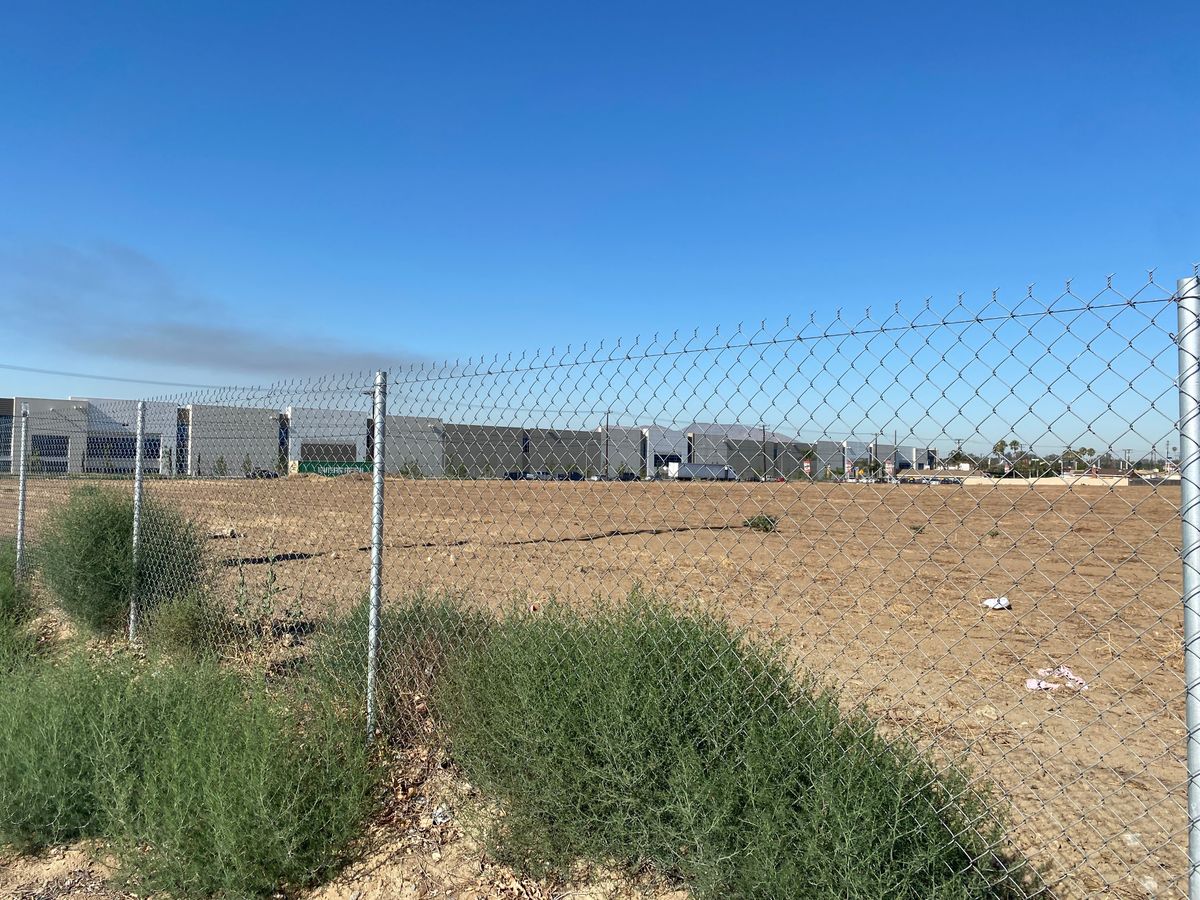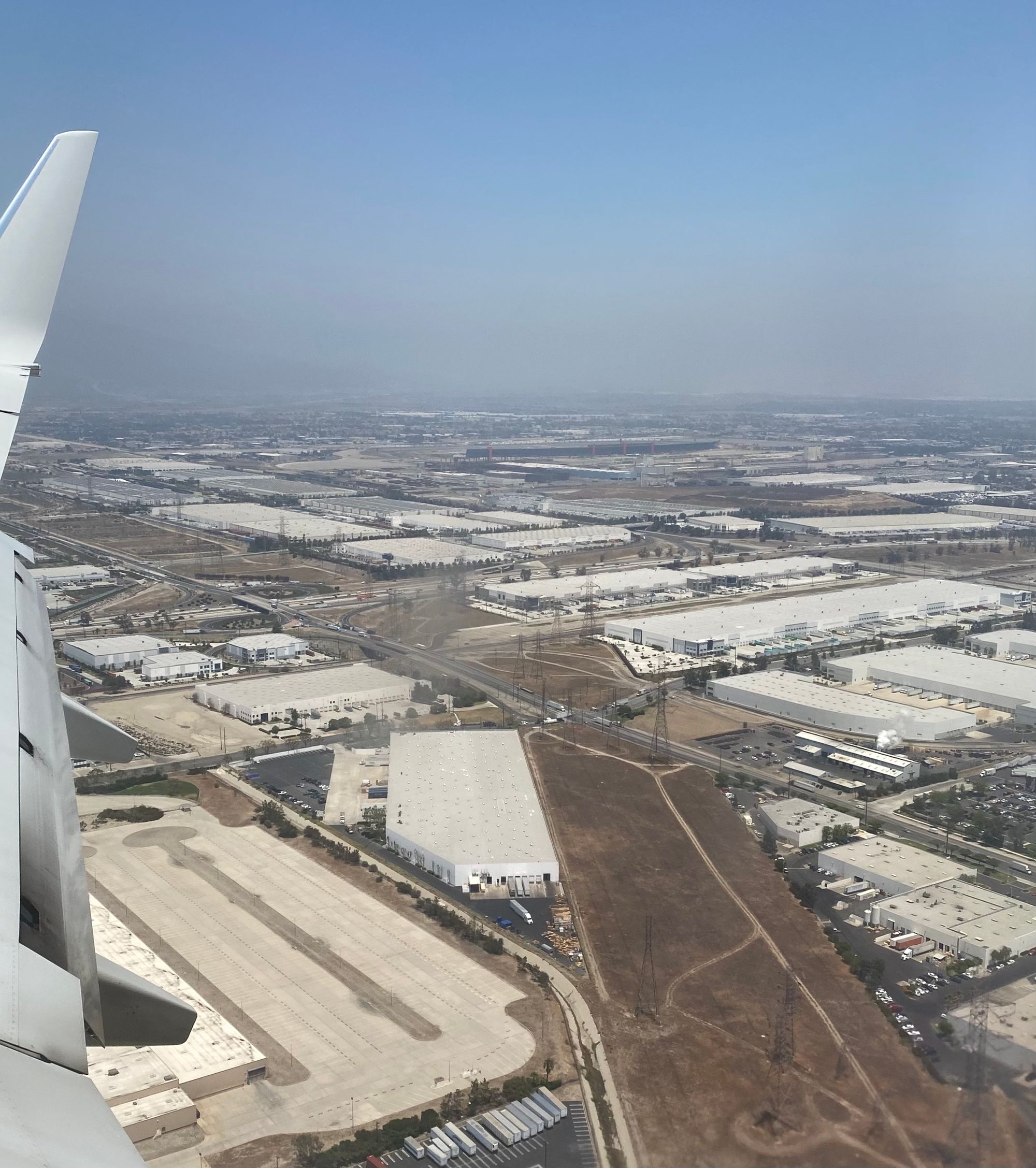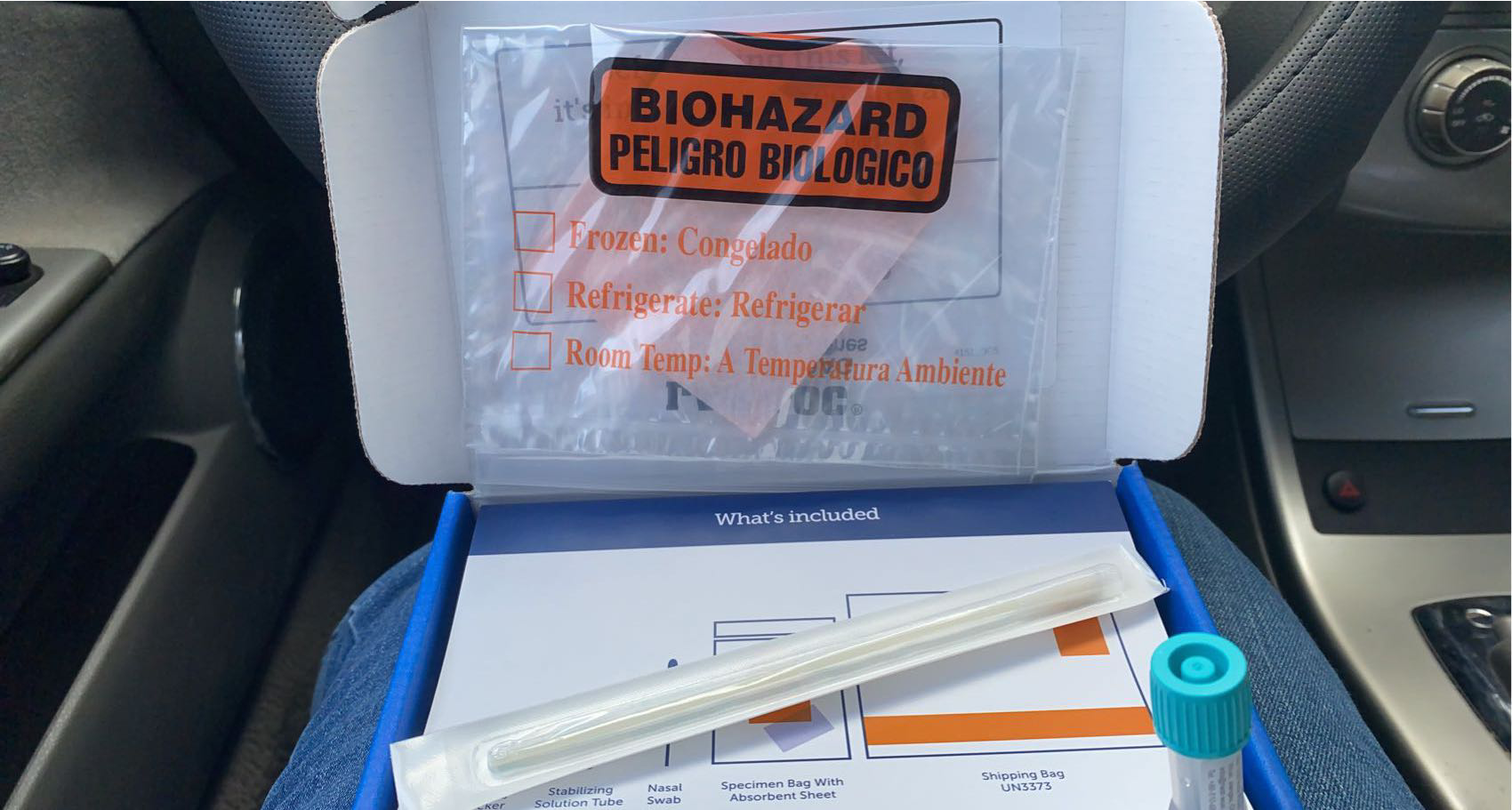Commentary: Covid-19 hurt our most essential workers. My research will show you how

Growing up in the Inland Empire my whole life makes me no stranger to the nation’s worst air pollution. Sadly, the health and social issues related to poor air quality have only grown. I’ve come to understand that the coronavirus pandemic only helped to highlight environmental racism and the cruelty of racial capitalism.
Last summer, I returned to my family’s home in Bloomington to collect data for my doctoral research program at Purdue University. I didn’t need to travel far to observe the most recent changes in infrastructure that are the foundation of the global logistics industry. Freeways are expanding and dozens of warehouses continue to be built in my own backyard. The direct changes to the quality of life for my family and neighbors in Bloomington compels me to speak with Inland Empire residents to learn from their gut-wrenching experiences.
I collect interview, observational, archival and pollution exposure data to examine: 1) how the Inland Empire is made toxic and 2) who is subjected to breathing contaminated air. As a researcher and community member, my goal is to use these various lines of evidence to fight for clean air for my family, friends and the larger Inland Empire community.

After spending a year speaking with 15 essential workers across the Inland Empire, it became clear that COVID-19 related devastation was linked to a history of air pollution and labor in the region. Using customized maps, photos, videos and graphs, I put together an interactive narrative style ArcGIS story map to examine the intersections of pollution, COVID-19 and essential work in the Inland Empire. The story map attempts to show how air pollution, racialized divisions of labor and unhealthy work environments fueled COVID-19 infections and adverse health effects on the community.
When I spoke to residents in the global logistics industry, I learned that their status as essential workers during the COVID-19 pandemic dominated their health concerns. Guadalupe, 25, shared with me her experiences of struggling through the effects of the pandemic and air pollution. Guadalupe explained that she had contracted the virus months prior, but her health was not recovering. “Sometimes I have migraines. They feel like something is squeezing a part of my brain for hours,” Guadalupe shared. The pain physically stops me from doing things. It is worse during the morning when I wake up congested with a sore throat, and just feel out of it. This is like every single day.”
Unfortunately, Guadalupe was one of millions during the pandemic to face greater impacts from the coronavirus because of poor air quality. Research shows that air pollution increases COVID-19 incidence and mortality. A study published in October 2020 estimates that air pollution contributed to 18% of COVID-19 deaths in the United States. Inland Empire residents are exposed to disproportionately higher levels of long-term pollution, increasing their risk of COVID-19 infection and death. And for essential workers the risks dramatically increased in the warehousing industry. According to the University of California, Merced’s Community and Labor center, during the first ten months of the pandemic alone, warehouse worker deaths increased by 57% in California.

For essential workers like Guadalupe in the Inland Empire, the negative effects of the virus and the pandemic were intensified by years of disproportionately higher pollution exposure levels, the state’s classification of essential workforce, financial insecurity and negligent employers.
Countless Inland Empire residents faced the challenges of essential work and still experience the devastating effects of the pandemic. Together with the contributions of Inland Empire residents, including Guadalupe, I hope to continue raising visibility of the structural violence against essential workers to encourage solutions that bring better change to frontline communities.
Jose Becerra Vera is a lifelong Inland Empire resident and Ph.D. Candidate in the Department of Anthropology at Purdue University. Jose's commentary and story map is part of the local environmental reporting initiative – Unfiltered IE – that is supported by the civic media project The Listening Post Collective and funded by a grant from the Ford Foundation.
